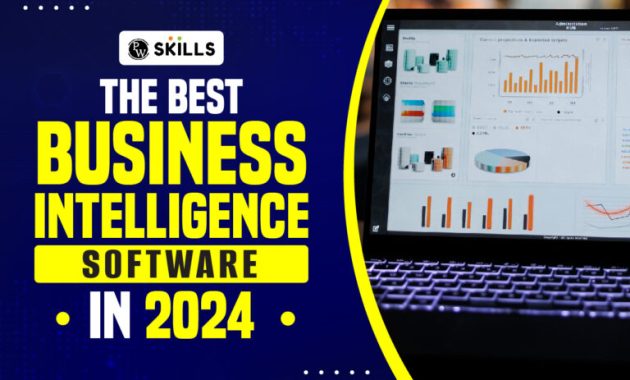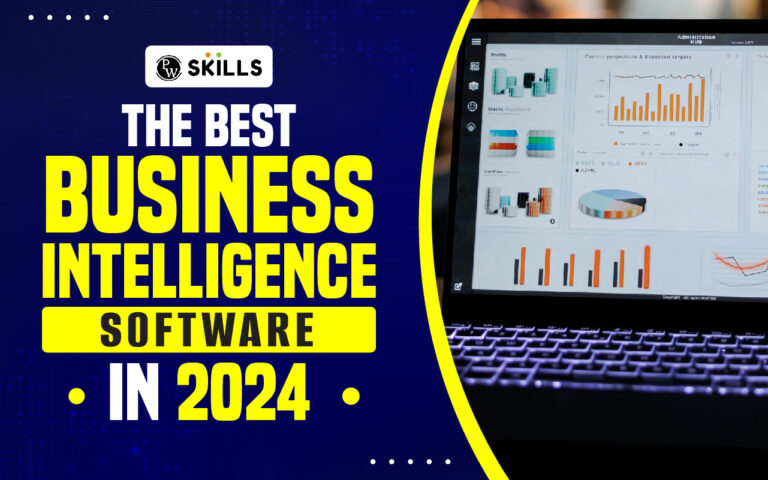
What Makes Great Business Intelligence Software That Converts: A Deep Dive
The business world is awash in data. Companies of all sizes generate and collect vast amounts of information daily. But raw data is useless. It’s the ability to transform this data into actionable insights that truly matters. This is where Business Intelligence (BI) software steps in. But not all BI software is created equal. What makes great Business Intelligence software that converts? This article explores the key features, functionalities, and considerations that separate the exceptional from the merely adequate. Understanding these elements is crucial for businesses seeking to leverage data for a competitive edge.
Understanding the Core Functionality of BI Software
At its heart, BI software is designed to analyze and visualize data. It takes raw data, cleans it, and transforms it into understandable formats. This process allows users to identify trends, patterns, and anomalies. Ultimately, the goal is to support better decision-making. Effective BI software provides a range of core functionalities:
- Data Integration: The ability to connect to and pull data from various sources. This includes databases, spreadsheets, cloud services, and more.
- Data Warehousing: A centralized repository for storing and managing data. This ensures data consistency and accessibility.
- Data Analysis: Tools for performing statistical analysis, data mining, and predictive modeling.
- Data Visualization: Creating charts, graphs, and dashboards to present data in an easily understandable format.
- Reporting: Generating custom reports and automated reports to track performance and monitor key metrics.
The best BI software excels in all of these areas. It offers a seamless user experience and empowers users to explore data without requiring extensive technical expertise. The software transforms data into knowledge. This knowledge supports better business outcomes.
Key Features of High-Converting BI Software
So, what specific features distinguish great BI software? Several key elements are crucial for driving conversions and delivering tangible business value. These features contribute to the ability of the software to truly convert data into actionable insights. This, in turn, drives better decision-making and improved performance. These features can be seen in the functionality of great Business Intelligence software.
Ease of Use and User Experience
One of the most critical factors is ease of use. Complex software with a steep learning curve hinders adoption. Great BI software offers an intuitive interface. It allows users to quickly access and analyze data without extensive training. Drag-and-drop functionality, pre-built templates, and readily available tutorials are all hallmarks of user-friendly software. The user experience should be seamless and enjoyable, encouraging users to explore data and uncover insights. This is a key factor in what makes great Business Intelligence software.
Robust Data Integration Capabilities
The ability to connect to various data sources is essential. Great BI software integrates with a wide range of data sources. This includes databases, cloud services, and legacy systems. Data integration should be a smooth and automated process. This minimizes the need for manual data manipulation. The software should also handle different data formats. It ensures data accuracy and consistency across all sources. This is what makes great Business Intelligence software stand out.
Advanced Data Analysis and Modeling
Beyond basic reporting, great BI software provides advanced analytical capabilities. It includes features like predictive analytics, statistical modeling, and data mining. These tools enable users to identify trends, forecast future outcomes, and uncover hidden insights. The software should also support advanced calculations and custom formulas. These capabilities empower users to perform sophisticated analysis. The goal is to drive better, data-driven decisions. This is a hallmark of what makes great Business Intelligence software.
Interactive Data Visualization and Dashboards
Data visualization is crucial for communicating insights effectively. Great BI software offers a wide range of chart types, graphs, and dashboards. These visualizations should be interactive, allowing users to drill down into data and explore different perspectives. Customizable dashboards should provide a comprehensive overview of key performance indicators (KPIs). They also should allow users to monitor progress towards business goals. Effective data visualization is a defining characteristic of what makes great Business Intelligence software.
Mobile Accessibility and Collaboration Features
In today’s fast-paced business environment, mobile access is essential. Great BI software offers mobile apps or responsive web interfaces. These allow users to access data and dashboards on the go. Collaboration features, such as the ability to share reports and dashboards, are also important. These features facilitate communication and teamwork. They ensure that insights are shared across the organization. This is an important aspect of what makes great Business Intelligence software.
Scalability and Performance
As businesses grow, their data needs will also increase. Great BI software is designed to scale with the organization. It can handle large datasets and complex queries without performance degradation. The software should also be optimized for speed and efficiency. It ensures that users can access data and generate reports quickly. Scalability and performance are critical factors in what makes great Business Intelligence software.
Choosing the Right BI Software for Your Business
Selecting the right BI software is a critical decision. It requires careful consideration of several factors. These factors ensure that the software aligns with your business needs and goals. The wrong choice can lead to wasted resources and missed opportunities. The right choice can unlock significant value.
Define Your Business Needs and Goals
Before evaluating BI software, clearly define your business needs and goals. What specific questions do you want to answer with data? What key metrics do you need to track? What departments or users will be using the software? Understanding your requirements will help you narrow down your choices. It will also ensure that the software you select meets your specific needs. This is a crucial first step in finding what makes great Business Intelligence software.
Evaluate Software Features and Functionality
Once you have defined your needs, evaluate the features and functionality of different BI software solutions. Does the software offer the capabilities you require? Does it integrate with your existing data sources? Is the interface user-friendly? Does it provide the level of analysis and visualization you need? Carefully assess each software solution. Check how it aligns with your business goals. This is a key element in understanding what makes great Business Intelligence software.
Consider Pricing and Licensing Models
BI software can range in price from free open-source options to expensive enterprise solutions. Consider your budget and the different pricing models available. Some software solutions offer subscription-based pricing. Others offer perpetual licenses. Carefully evaluate the total cost of ownership. Consider factors such as implementation costs, training costs, and ongoing maintenance fees. This is another consideration in determining what makes great Business Intelligence software.
Assess Vendor Support and Training
Choose a vendor that offers strong support and training resources. This includes documentation, tutorials, and customer support. The vendor should be responsive to your needs and provide timely assistance when needed. Adequate training is also essential to ensure that your users can effectively use the software and leverage its features. This is an often overlooked element of what makes great Business Intelligence software.
Prioritize Data Security and Compliance
Data security is paramount. Ensure that the BI software you choose offers robust security features. These features protect your data from unauthorized access and breaches. The software should also comply with relevant data privacy regulations, such as GDPR and CCPA. This is increasingly important in today’s environment. The right software will provide adequate data security. This is part of what makes great Business Intelligence software.
The Benefits of Investing in Great BI Software
Investing in great BI software offers significant benefits for businesses. The software can drive improved decision-making, increased efficiency, and a stronger competitive advantage. The benefits of great Business Intelligence software are numerous.
- Improved Decision-Making: BI software provides data-driven insights. It empowers businesses to make better-informed decisions. This leads to improved outcomes.
- Increased Efficiency: BI software automates data analysis and reporting. It frees up valuable time for employees to focus on other tasks.
- Enhanced Customer Experience: By understanding customer behavior, businesses can personalize experiences. They can improve customer satisfaction.
- Increased Revenue: By identifying trends and opportunities, businesses can optimize their sales and marketing efforts. They can drive revenue growth.
- Competitive Advantage: By leveraging data, businesses can gain a deeper understanding of their market. They can identify opportunities for growth.
Conclusion: Data-Driven Success
In conclusion, what makes great Business Intelligence software that converts is a combination of factors. These factors include ease of use, robust data integration, advanced analysis capabilities, and interactive visualizations. Businesses that invest in the right BI software can unlock significant value. They can drive improved decision-making, increased efficiency, and a stronger competitive advantage. By carefully evaluating your needs and choosing the right solution, you can harness the power of data. You can transform it into actionable insights that drive business success. Understanding these factors is key to success. Businesses can then use their data to its full potential. This will set them on the path to data-driven success. [See also: Choosing the Right BI Software for Your Business]

